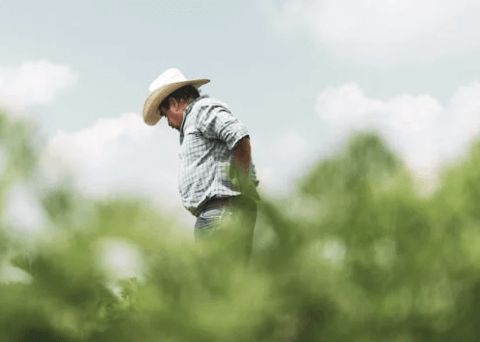Buying rural land is a big decision, whether you’re building a home, starting a farm, or planning an investment for the future. Did you know that the value of U.S. farmland averaged $4,080 per acre in 2023 and continues to increase annually, making it a valuable investment opportunity? Rural properties offer unique benefits but come with challenges, such as zoning restrictions and accessibility, which should not be overlooked. Renowned real estate investors Steve Daria and Joleigh emphasize that understanding the land’s potential requires careful evaluation of key factors like topography, utilities, and legal clearance. They’ve helped countless buyers like you make educated decisions about buying rural land. Do your research and follow their advice to avoid costly mistakes and ensure your investment aligns with your goals. Whether you’re looking for a peaceful retreat or a profitable venture, getting expert guidance is essential. Schedule a free discussion with Steve and Joleigh today to get started on finding the perfect rural property!
Key Points
- Evaluate the Land’s Location and Accessibility: The location of rural land can significantly impact its value and usability. Consider proximity to main roads, nearby amenities, and whether the land has road access for convenience and potential future development.
- Check Zoning Laws and Restrictions: Zoning regulations determine how the land can be used, whether for residential, agricultural, or recreational purposes. Ensure the property aligns with your intended use to avoid future legal or financial complications when buying rural land.
- Assess the Land’s Physical Characteristics: Physical features like topography, soil quality, and access to water are crucial in determining how usable the land is and its potential for future development. For example, uneven terrain or poor soil could make farming or construction more challenging.
- Ensure Utilities and Infrastructure Are Available: Verify if the property is connected to essential utilities, including electricity, water, and sewage systems. Without these essential services, additional costs for installations or alternatives may arise.
- Conduct Proper Environmental and Title Checks: Ensure there are no environmental issues, such as soil contamination or flooding risks. Additionally, verify the land’s title to ensure it is free from legal disputes or liens that could complicate the purchase process.
What are the main factors to consider when buying rural land?
When buying rural land, there are several vital factors you need to consider to ensure you make the best decision for your investment or lifestyle goals.
First, location significantly affects accessibility, proximity to amenities, and future development potential.
Be sure to review local zoning laws to ensure the property aligns with your intended use, whether it’s for farming, building a home, or operating a business.

The land’s physical properties, such as topography, soil quality, and water availability, are equally important, as they can influence construction costs or agricultural success.
Additionally, you’ll want to see if utilities like electricity, water, and sewage are available or if installing them will require extra expenses.
Conduct thorough legal checks to verify the property has a clear title, ensuring you avoid potential issues such as liens or ownership disputes.
Before making a commitment, it is essential to evaluate environmental factors, including potential flooding risks and soil contamination.
Finally, a professional land survey will help you verify boundaries and identify any hidden concerns about the property.
These factors will help you make an informed decision and ensure your rural land purchase fits your plans.
Get Started: Get Your Cash Offer Below…
We are direct land buyers. There are no commissions or fees and no obligation whatsoever. Start below by sharing where your property is and where we can send your offer…
How do zoning laws affect the use of rural land?
Zoning laws are key to defining how rural land can be used, making it vital to understand these regulations before buying rural land.
Local governments set these laws and specify permissible activities on a piece of property.
For instance, some areas may be zoned for agricultural use, where farming and raising livestock are allowed, while others are designated for residential or commercial purposes.
If you plan to build a home on the land, you’ll need to verify it’s zoned for residential use; otherwise, your plans might be rejected.
Zoning laws can also regulate aspects like building height, land subdivision, and placement of structures, which could impact your projects.
Additionally, some rural land may fall under environmental protection zones, restricting activities like deforestation or construction near wetlands.
Check with local zoning officials or hire an expert to avoid fines or legal trouble from zoning violations.
Understanding these laws ensures you can use your property as intended and avoid any future complications.
What should I look for in terms of soil quality and topography?
- Check Soil Fertility: Good soil quality is essential if you plan to grow crops or establish a garden. Ensure the soil contains enough nutrients and has the right pH level to support your plants’ growth.
- Assess Drainage Capabilities: Poor drainage can lead to standing water, harming crops, or making the land difficult to use. Look for soil that absorbs and drains water at a balanced rate, avoiding areas prone to flooding.
- Look for Erosion Risks: Sloped land can be prone to erosion, which might wash away topsoil and make farming or building difficult. Choose land where the topography naturally minimizes erosion or explore ways to manage it if needed.
- Evaluate Stability for Construction: If you plan to build on the land, ensure the soil and topography can support structures. Some soils, like clay, can expand and shift, causing problems for foundations and buildings over time.
- Identify Land Use Compatibility: The soil and topography should match your goals, whether you’re farming, building, or simply conserving land. Flat or gently rolling areas are ideal for farming, while slopes may be better for grazing or scenic homes.

How can a land survey help in determining a property’s suitability?
A land survey is a valuable tool for determining a property’s suitability, as it provides crucial information about its boundaries and features.
Surveys help confirm the exact size and shape of the property, ensuring there are no disputes with neighboring landowners.
They can reveal if any structures like fences or buildings are encroaching on the property lines, which could lead to legal complications.
A survey also identifies easements, such as utility access paths, that might restrict your use of the land.
Additionally, it maps out natural features like slopes, bodies of water, and vegetation, which can affect construction plans or agricultural use.
For those buying rural land, a survey is especially helpful in understanding the topography and drainage patterns, which are critical for farming, building, or other projects.
It can also uncover hidden concerns, like flood zones or buried utility lines, preventing costly surprises in the future.
A land survey provides a comprehensive understanding of the property, allowing you to assess its suitability for your specific needs with confidence.
What legal checks should I complete before buying rural land?
- Verify Property Ownership: Confirm that the seller legally owns the land and has the right to sell it. Check for any disputes or unclear titles that could cause issues later.
- Review Zoning and Land-Use Regulations: Ensure the land is zoned for your intended use, such as farming, building, or conservation. Failing to check zoning laws can limit your ability to use the property.
- Verify Easements and Rights of Way: Easements grant others, such as utility companies, the right to access or use specific parts of your land—for instance, to install or maintain power lines. Being informed in advance can help you steer clear of unexpected challenges or complications when buying rural land.
- Investigate Environmental Regulations: Some rural land may have protected areas or restrictions related to conservation, wetlands, or wildlife habitats. Understanding these rules will keep you from accidentally violating regulations when buying rural land.
- Confirm Land Survey and Boundaries: Ensure an accurate land survey defines the property boundaries. This ensures you can steer clear of any potential boundary disputes with neighboring property owners.
How do I negotiate a fair deal when buying rural land?
Negotiating a fair deal when buying rural land requires preparation, patience, and clear communication.
Begin by studying the local market to gain insight into average land prices and to compare similar properties in the area.
This knowledge gives you a strong foundation to identify a reasonable price and confidently offer it.
It’s also important to assess the condition of the land and any potential costs for improvements, like clearing fencing or road access, and factor that into your negotiation.
Be upfront with the seller about your plans and use this information to find a common ground that benefits both parties.
Working with experts like Steve Daria and Joleigh, seasoned real estate investors and land buyers for cash, can give you an edge during negotiations.
Their experience can help you uncover hidden property issues, understand market trends, and ensure your deal closes quickly and smoothly.
Don’t be afraid to ask for concessions, such as covering closing costs or including any necessary surveys.
If you’re ready to take the next step and want assistance from professionals who know the industry inside and out, reach out to Steve Daria and Joleigh to make your rural land-buying process seamless.
**NOTICE: Please note that the content presented in this post is intended solely for informational and educational purposes. It should not be construed as legal or financial advice or relied upon as a replacement for consultation with a qualified attorney or CPA. For specific guidance on legal or financial matters, readers are encouraged to seek professional assistance from an attorney, CPA, or other appropriate professional regarding the subject matter.
